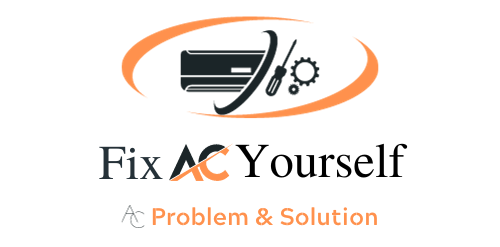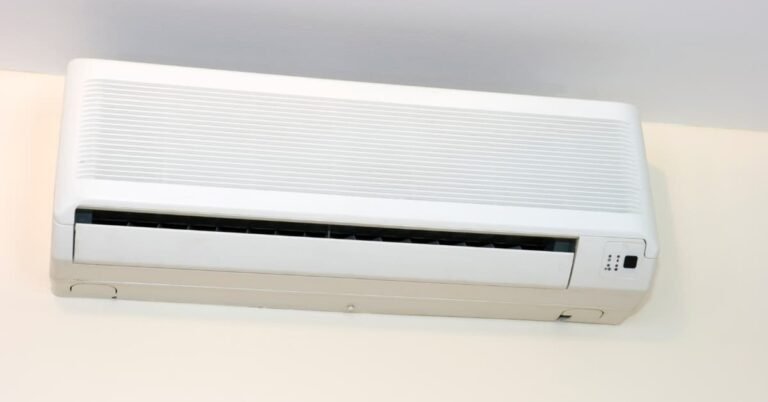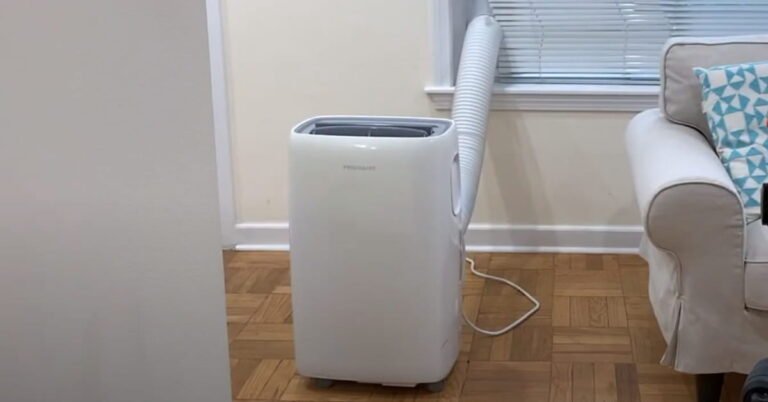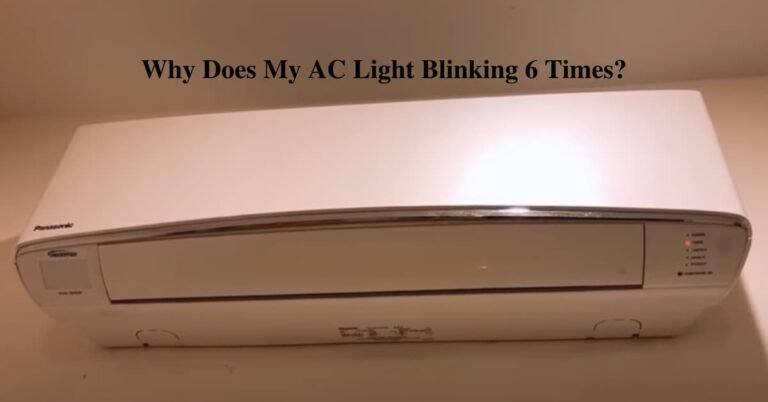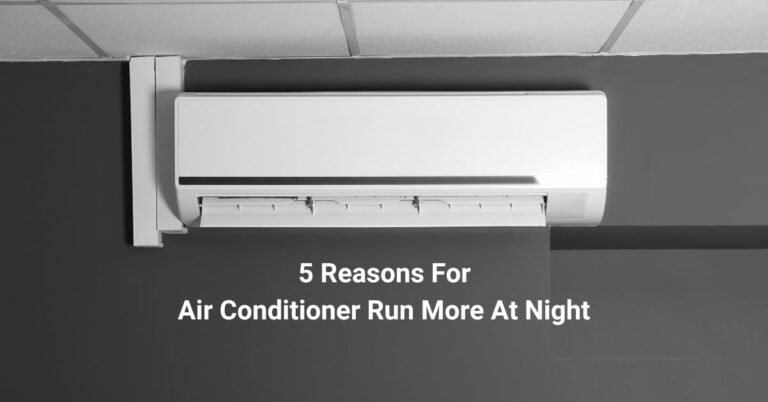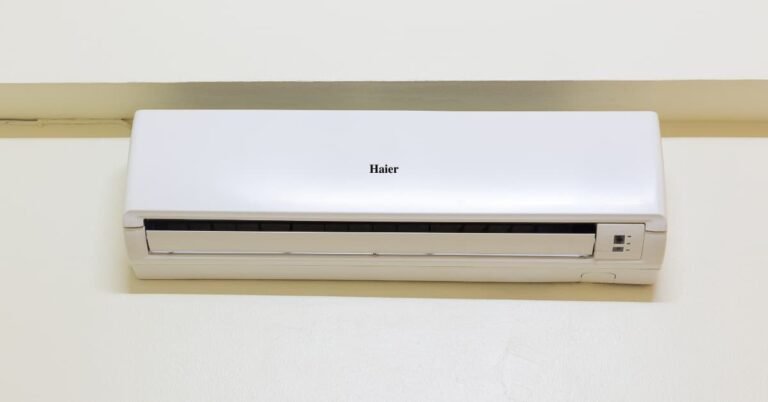Why Does My Air Conditioner Turn On By Itself?
Are you experiencing the frustrating phenomenon of your air conditioner turning on by itself? You’re not alone. This common issue can be caused by various factors, from faulty thermostats to software glitches.
In this guide, we explore why your AC unit may turn on automatically and provide troubleshooting tips to resolve the issue.
By identifying the behavior’s root cause, you can take appropriate action to resolve the problem and prevent future occurrences.

Reasons Behind Air Conditioner Turn On By Itself
There are various factors that can contribute to your air conditioner turning on autonomously. These may include a malfunctioning thermostat, power fluctuations, Electrical Issues, and faulty sensors.
Let’s see each possibility in detail:
1. Faulty Thermostat
A faulty thermostat is a common culprit behind an air conditioner starting on its own. When the thermostat malfunctions, it can send incorrect signals to the AC unit, resulting in automatic activation.
To address this issue, start by checking the batteries of your thermostat and ensuring they have enough power. Next, inspect the wiring connections to ensure they are secure and undamaged.
If the issue continues, consult a professional technician for a thorough inspection and accurate calibration of the thermostat’s internal components. Fixing the faulty thermostat you can prevent spontaneous air conditioner activation and enhance system performance.
2. Power Surges
Another reason your air conditioner may turn on unexpectedly is power surges. Power surges are sudden voltage increases caused by factors such as lightning strikes or utility company issues. These surges can inadvertently trigger your AC unit to start.
To protect your air conditioner from power surges, consider installing surge protectors at strategic points in your electrical system. Surge protectors divert excess voltage away from sensitive electronics, including your air conditioner, minimizing the risk of damage and unintended activations. Using a UPS designed for air conditioning units can provide added protection during power fluctuations. UPS systems provide backup power and stabilize the current, ensuring a steady and safe supply to your AC unit.
3. Timer Settings
Timer settings are another aspect to consider when your air conditioner turns on by itself. Many modern air conditioning units have programmable timers, allowing you to schedule specific activation times in advance. If someone in your household programmed the AC unit to turn on at specific times but forgot, it may explain the automatic startup.
To address this issue, review and adjust the timer settings according to your preferences. Refer to the manufacturer’s instructions for guidance on accessing and adjusting timer settings for your air conditioner model. To prevent unintentional activations and enhance energy efficiency, verify and update the timer settings of your air conditioner.
4. Faulty Wiring or Electrical Issues
Faulty wiring or electrical issues can disrupt the communication between your thermostat and air conditioner, causing unintended automatic activations.
To resolve this issue, it’s crucial to have a professional technician inspect your wiring and electrical connections. They will conduct a thorough examination, identify any damaged or loose wires, and make the necessary repairs or replacements. Keep your wiring in good condition to prevent unwanted activations and ensure optimal performance of your air conditioning system.
5. Software Glitches
Sometimes, software glitches can cause your air conditioner to start on its own. Glitches may happen due to conflicts between the AC unit’s software and other devices or systems at home. Outdated software can also cause programming errors or inconsistencies, leading to automatic activations.
If you suspect a software issue, it is advisable to contact the manufacturer or an HVAC technician. They can check for available software updates and apply any necessary patches to resolve glitches. Updating the software stabilizes the system, minimizes malfunctions, and prevents spontaneous air conditioner activation.
6. Faulty Sensors
Faulty sensors within your air conditioning system can also contribute to unintended activations. Temperature sensors play a vital role in detecting changes in the environment and signaling the AC unit to turn on or off accordingly. However, if these sensors are malfunctioning or incorrectly calibrated, they may provide inaccurate readings, triggering automatic activations.
To solve this problem, consult a professional technician to inspect and recalibrate the sensors as necessary. They’ll ensure accurate temperature detection by the sensors and effective communication with the AC unit to avoid unnecessary startups.
7. Remote Control Malfunction
Sometimes, a malfunctioning remote control can cause your air conditioner to turn on by itself.If the buttons on the remote control are stuck, worn out, or not functioning correctly, they may inadvertently send frequent activation signals to your AC unit. To resolve this issue, start by replacing the batteries in the remote control.
If the problem continues, try a new remote control or alternative methods like a smartphone app or wall-mounted control panel. Fixing the remote control malfunction improves control over your air conditioning system, preventing accidental activations.
Conclusion
To troubleshoot and fix your air conditioner turning on by itself, examine potential causes like faulty thermostats, power surges, and timer settings. Taking these steps will prevent energy waste and ensure optimal performance and comfort in your home.
If you’re unsure about fixing the issue yourself, it’s best to seek professional help from an HVAC technician. They can thoroughly inspect your air conditioning system and provide specific recommendations for your situation.
